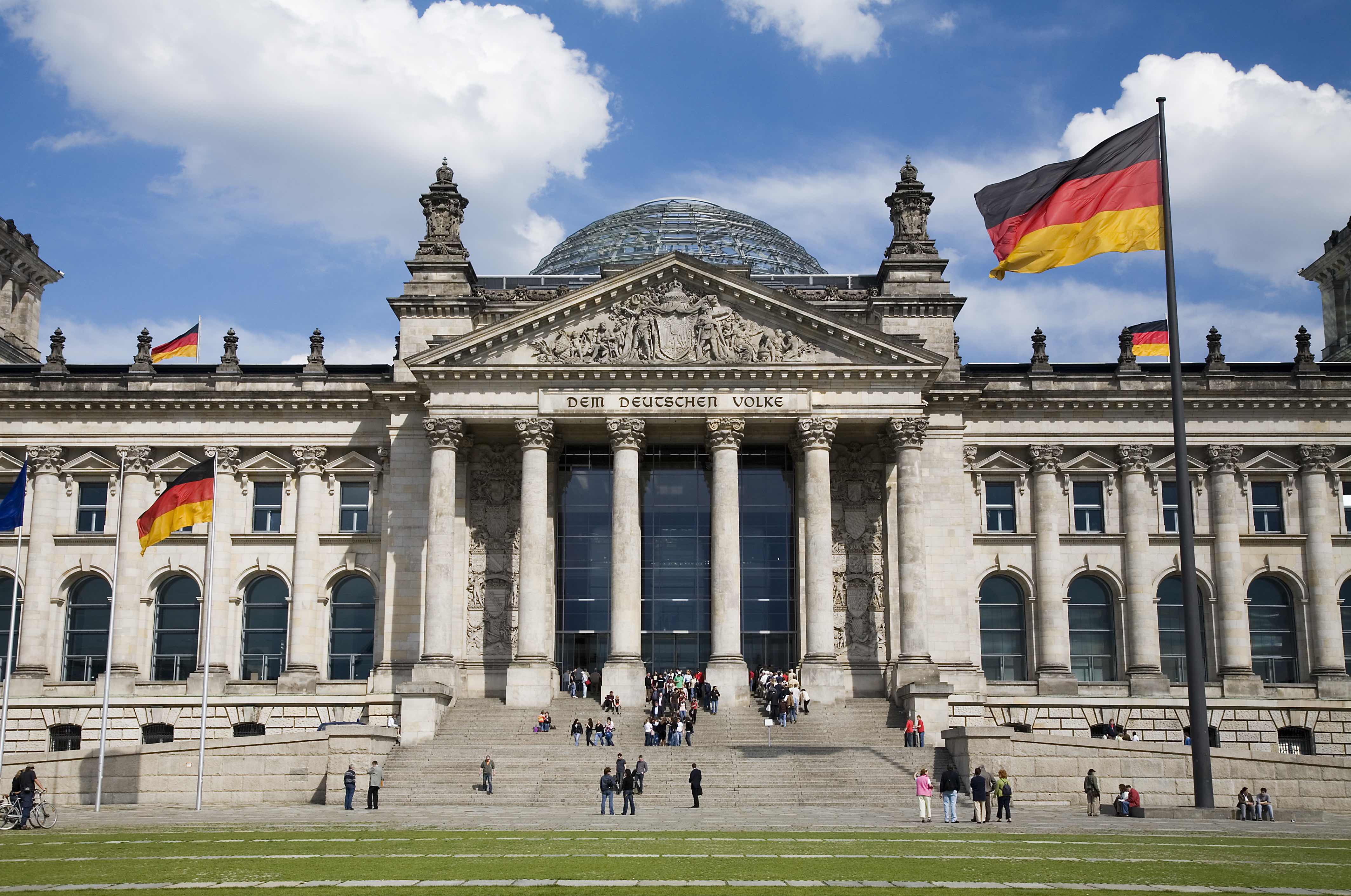What’s Next for the Bundestag, Merkel and Germany’s Security Policies?
The results of the German federal election this weekend were at once unsurprising and worrisome.

Published by The Lawfare Institute
in Cooperation With

The results of the German federal election this weekend were at once unsurprising and worrisome.
They were unsurprising because, as predicted, the Christian Democratic Union (CDU), the party of Chancellor Angela Merkel--along with its affiliated party, the Christian Social Union (CSU)--won 32.9 percent of the votes cast. This makes the combination of the two, known as the Christian Democrats, the largest party in the largest ever Bundestag (the new parliament will have 709 seats). The party actually lost seats both proportionally and numerically, and is, in any event, not large enough to take control of the government without forming a coalition. The Social Democrats (SPD) scored their worst numbers in a German general election since 1949, netting only 20.5 percent of the vote. Meanwhile, the Alternative für Deutschland (AfD), a populist right-wing party founded in 2013, garnered 12.6 percent of the vote, making it the third-largest party in the Bundestag and the first extreme right-wing party to have seats in the Bundestag since the Deutsche Partei’s exit in the 1960s. These numbers are surprisingly close to those predicted, but the introduction of the AfD into the Bundestag and the decline of CDU/CSU and SPD popularity signals the increasing strength of an anti-immigrant, nationalist sentiments in Germany.
The composition of the coalition will determine the magnitude and nature of the compromises the Christian Democrats will have to make over the next four years. The CDU/CSU has vowed to exclude both the AfD and the extreme left-wing Die Linke from any government it forms, so sudden right- or left-wing radicalization is unlikely. But throwing a post-election curve ball, the center-left SPD has announced that it will not join a coalition with the CDU/CSU. Assuming this holds, it would make the SPD the official opposition party, edging out the AfD in that role. With the SPD in the opposition, the only coalition option that would earn the CDU/CSU and its allied parties more than 50 percent of the Bundestag is known as the “Jamaica” coalition: the CDU/CSU (the black party), the Green Party and the Free Democratic Party (FDP, also known as the yellow party).
Just because the math works doesn’t mean the coalition will. Merkel will spend the next few weeks negotiating a governing coalition, and the FDP and the Green Party are not obviously ready or willing allies—the three parties having very different assumptions about all sorts of things. Moreover, some politicians from both the FDP and the Green Party have publicly rejected the “Jamaica” option. Despite these hurdles, an alliance isn’t impossible; the CDU, FDP and the Green Party have formed a coalition that currently governs the state of Schleswig-Holstein. At least one publication has predicted that these negotiations could last through Christmas. If Merkel and her potential allies don’t reach an agreement, Merkel may have to settle for a minority government.
So what does all this mean for German policy toward Russia, its approach to EU defense and its relationship with America? As I explained in my previous post, the CDU/CSU may have to compromise in some policy stances in order to cobble together a governing coalition.
The CDU/CSU and the Green Party agree that sanctions against Russia should be maintained until Russia complies with the terms of the Minsk Protocol. The FDP, however, has been more accepting of Russia’s annexation of Crimea. Although unlikely, the CDU/CSU may face some pressure to soften its approach toward Russian sanctions if it wants FDP cooperation. The Green Party, however, is by no means aligned with the CDU/CSU on every issue. The FDP agrees with the CDU/CSU on both military spending and NATO support. The Green Party, by contrast, is against a military buildup. Those concerned about Germany’s alignment with Russia should pay close attention to the push-and-pull of negotiations over the coming weeks.
Insofar as Germany’s relationship with the United States is concerned, it is likely that a coalition of the CDU/CSU, FDP and Green Party would be much friendlier to American interests than a government more influenced by the nationalist AfD or Die Linke. (The latter advocates a deeper relationship with Russia instead of the U.S. and is opposed to U.S. military intervention around the world.) While generally in favor of a closer relationship with the United States, the Green Party recently criticized the Trump administration’s decision to withdraw from the Paris climate agreement. The Green Party also disagrees with some U.S. policy stances on human rights and trade. For its part, the FDP favors an expanded trade relationship with the United States. Tensions have escalated between Merkel and the Trump administration in recent months, as evidenced by some of her statements, so a coalition with the FDP and the Green Party may reinforce the new status quo of German-American relations.
The significant policy differences between the parties in the potential “Jamaica” coalition is cause for some concern. At the end of the negotiations, whatever government emerges will be hard-won. All the while, the specter of the far-right AfD entering the Bundestag will weigh on those elements of government that oppose extreme nationalism and that seek to preserve stability in Europe.





